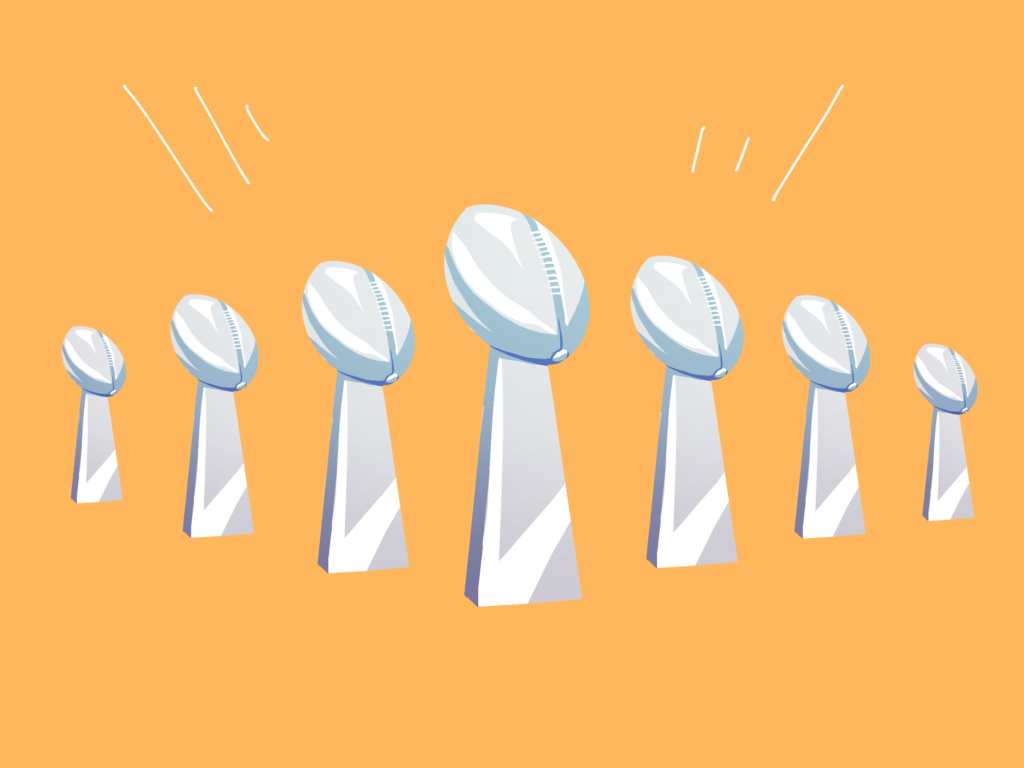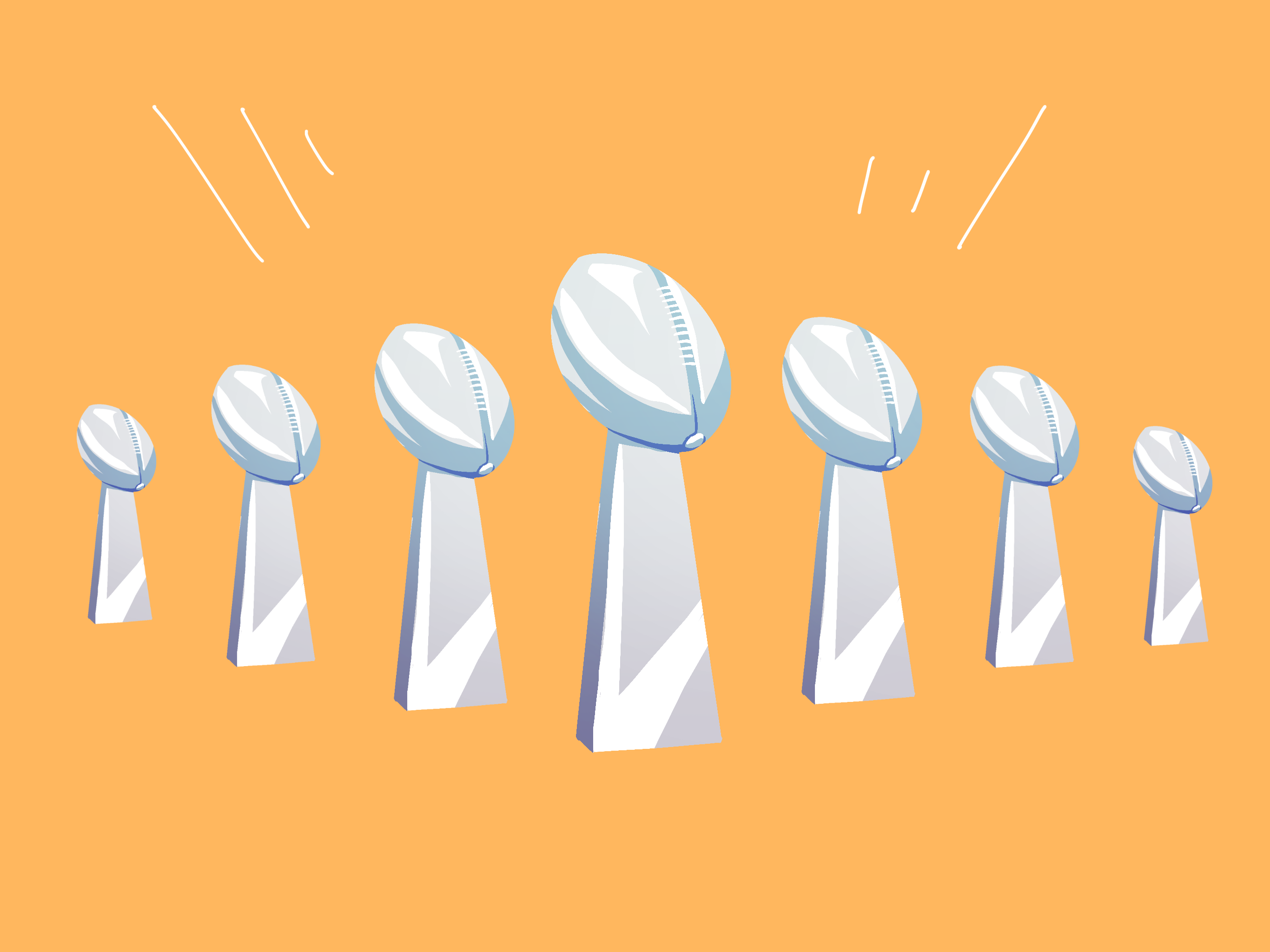Tom Brady.
Few times in sports is an individual able to achieve enough to be considered the greatest of all time. Wayne Gretzky. Sir Lewis Hamilton. In the ears of a discerning sports fan, these names ring uniquely as the pinnacle of determination, competition, and most importantly: achievement.
Tom Brady.
Football is one of few sports that places so much outside the control of its best player. In an average game, whether they play offense or defense, a team’s most valuable player will only play about half of the snaps. Yet, no single position can make or break an entire team like the quarterback.
Tom Brady.
Football is also strangely alone in the way it has evolved. Hockey, baseball, tennis, and so many others have evolved around the sport itself; better equipment, increased safety, new strategies all come with time. Yet watching a football game from each past decade gives a completely different experience. From the gunslinging 1990s to the days before the forward pass was even a legal play, the pure existence of football necessitates change.
Tom Brady.
Few impact players are able to survive meaningful change to their position. Running backs, as an example, dominated the sport in the 2000s, winning three MVPs and making offenses and defenses alike scheme around their impact. Entire teams crumbled over their inability to secure this position. Despite this, the sport has evolved out of the need for their use and overuse. Only one position has consistently been drafted higher than any other, won more MVPs than any other, and changed the game more than the quarterback.
Tom Brady.
At this point, you may be getting annoyed by his name. Of the 30 teams he did not play for over his 22-year career, none can even claim to have come close to his individual success. Of the two he did play for, he is an honorary saint. Seven Super Bowls: more than any single team has won throughout their entire existence. Most career passing yards and touchdowns. Three MVPs, with maybe another on the way. Yet, no sports personality’s legacy is more in question by average fans than his.
Brady was drafted as the 199th pick in the 1999 NFL draft, a sixth round selection usually reserved for bench reserves and strings so far down they never see the field. He was paired with head coach Bill Belichick, a man with whom Brady’s legacy is now permanently intertwined. In his first season, backing up Drew Bledsoe, himself an accomplished player with a borderline Hall of Fame worthy career, Brady bided his time.
His time came quickly. After a brutal injury to Bledsoe in week two of Brady’s sophomore season, Brady took the reins and never let them go. Incredibly, the sixth round pick out of Michigan bested “The Greatest Show on Turf” in that season’s Super Bowl. Perhaps the rest is history.
But history is so strange. It can be molded by the smallest consequences of the smallest changes. What if the Patriots had decided to instead bolster their run defense with that late-round pick? Would they have returned to the Super Bowl just two seasons later? Would they have won again?
Just four seasons into his career, Brady had won multiple championships, a feat only eight quarterbacks prior had accomplished.. Yet, the doubt was already setting in. Both rings were earned off of the foot of Adam Vinatieri — perhaps the greatest kicker of all time in his own right — and his steely last second field goals. Brady had earned the Super Bowl MVP award both times, but it wasn’t enough to placate the people who called him lucky. Eventually, the excuses ran out. The next year, 2003, another championship.
Let’s fast forward. His opponents sure wish they could have.
2007 was Brady’s magnum opus. He seized his first MVP, throwing for 4,806 yards and 50 touchdowns, leading the league in both metrics. Matched with elite receivers like Randy Moss and Wes Welker, along with three Pro Bowlers protecting him on the offensive line, the Patriots stormed through the season, scoring a perfect 16–0 season before dominating the first two playoff games. Only the New York Giants stood in the way of a perfect season, and for Brady, a perfect legacy.
Then, the sky fell.
Call it fate, call it luck. Either way, no one would have imagined that Eli Manning and the underdog New York Giants could best perhaps the greatest team ever assembled. For the doubters, it was almost heaven. How could someone destined for greatness fail on the biggest stage? In a cruel twist of fate, Brady was unable to avenge this loss in 2008: a torn ACL ended his season with just 76 passing yards.
That wouldn’t stop him for long. Brady appeared in the Pro Bowl in 2009 and 2010 and racked up a second MVP in the latter year.. However, when he finally had the opportunity to avenge his demons against the New York Giants in their 2011 Super Bowl rematch, he fell short yet again. Falling short is human, yet for a man elevated to the role of superhuman by the media, it was nothing but ammunition for anyone with a sliver of doubt.
The Patriots made it back to the Super Bowl in 2014, where a historically questionable final play by the Seattle Seahawks landed Brady his fourth ring. Again, the doubt seeped through the woodwork; it had to be mainly built on sheer circumstance, surely Brady didn’t actually deserve this?
Two years later came Brady’s crowning jewel. Down 28–3 late in the third quarter against the Atlanta Falcons in Super Bowl 51, Brady led one of the greatest comebacks of all time to win the game, and with it his fifth championship and third Super Bowl MVP. Yet even this was not enough to appease the masses, and people still tout the game as a collapse rather than a comeback.
Another year, another MVP award, and yet another Super Bowl appearance. This time, matched up against a dynamic Philadelphia Eagles team hampered by the loss of MVP-candidate quarterback Carson Wentz and led by career backup Nick Foles, Brady’s sixth ring seemed like it was written in the stars. Brady and the Patriots simply came up short. Not even the most ardent of Patriots fans would defend this game, or argue that their team should’ve won. Sometimes, chaos wins.
In 2017, order won out once again. In one of the most underwhelming Super Bowls in recent memory, the Patriots beat the Los Angeles Rams by a score of 13–3 without Brady needing to throw a single touchdown.
The question of legacy is a complicated one. Despite being the end goal of every team starting a season, championships in any sport are not always heralded as the enormous efforts they took to achieve, but rather what asterisks can be attached in an effort to discredit them. In the summer of 2017, Brady decided to take his legacy into his own hands. He joined social media, entering the public debate over his “worthiness” in a uniquely Tom Brady way. He didn’t trash talk or gloat after every win; he did what he knew best, and let his game do the talking for him.
After 20 years, six championships, three MVPs, and enough contract money to fund a war, Brady joined the Tampa Bay Buccaneers in 2019 to earn the one thing he couldn’t with Bill Belichick: agency over his own success.
Incredibly, the success came immediately. Recruiting his long-time tight end target in fellow former Patriot Rob Gronkowski, the two joined a roster overpopulated with talent and overflowing with potential. They met the defending champion Kansas City Chiefs, led by Patrick Mahomes, already crowned “the next big thing” by media and fans alike. With nothing to lose, Brady won it all.
Again.
And now we arrive at 2021 and 2022. Brady ran it back with a Buccaneers roster that retained every starter on both sides of the ball, making them an early favorite to repeat as Super Bowl victors. Brady torched the field on a weekly basis, putting up 5,316 yards (a career high) along with 43 touchdowns. At the time of writing, the MVP award has not yet been announced, but Brady is once again a leading candidate for the honor. Unfortunately for him and Tampa Bay fans, that path ended in the second round of the playoffs with a hard-fought loss against the Rams.
Something to remember throughout all of this is the amount of time that passed. I was born just two months after Tom Brady won his first Super Bowl. Now a junior in college, I was able to witness perhaps his greatest season. In football, a game that is notorious for destroying its players’ bodies and minds before they turn 35, someone was able to stand in the eye of the storm and dominate nine years past his supposed prime.
A week later, on Jan. 30, Tom Brady officially announced his retirement, walking out on top.
Why do doubters doubt greatness?
A name often thrown out against Brady as the greatest football player of all time is Aaron Rodgers of the Green Bay Packers. In many ways, Rodgers is Brady’s foil. Both were drafted to be backups. Both led their teams to Super Bowls and won MVPs. Brady is fundamental, Rodgers is flashy. Brady makes the easy checkdown throw for a first down, Rodgers rolls out of the pocket and nails a receiver 40 yards down the field. Brady thrives in preparation, Rodgers thrives in improvisation. Brady matched his coaches, Rodgers outperformed them. When it comes down to it, Brady is boring, and Rodgers is exciting.
How many times have you heard someone say “oh, even I could do that!” to one of Brady’s plays? I challenge you to remember a time anyone has said the same about Rodgers.
Why does it matter? In the game of football, in any era dominated by any strategy, the only thing that has ever been the goal is to win games, and no one has done it better than Tom Brady.
Whether you like how he did it or not, he still did it.
Enjoy retirement, Tom. You’ve earned it.


